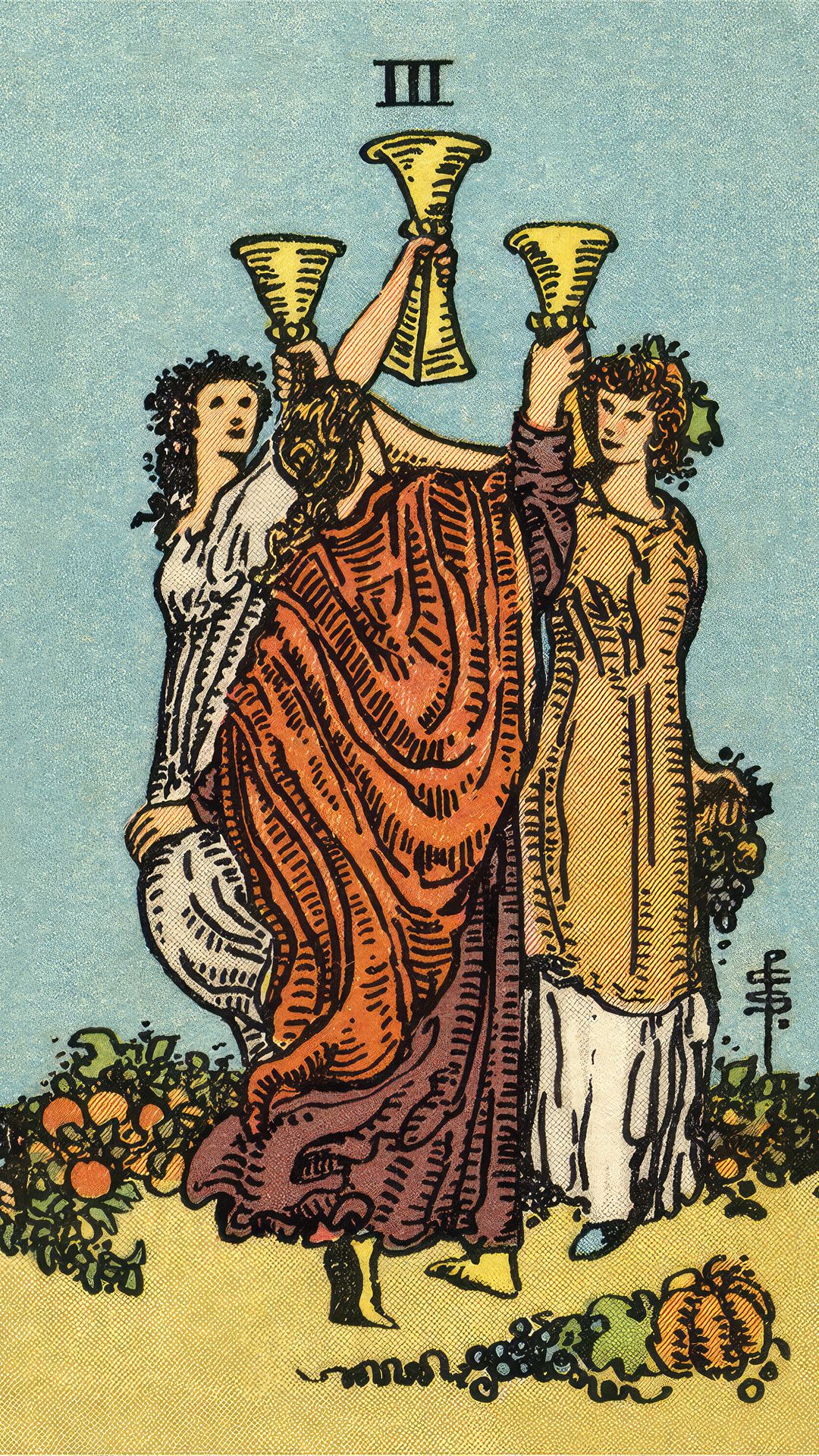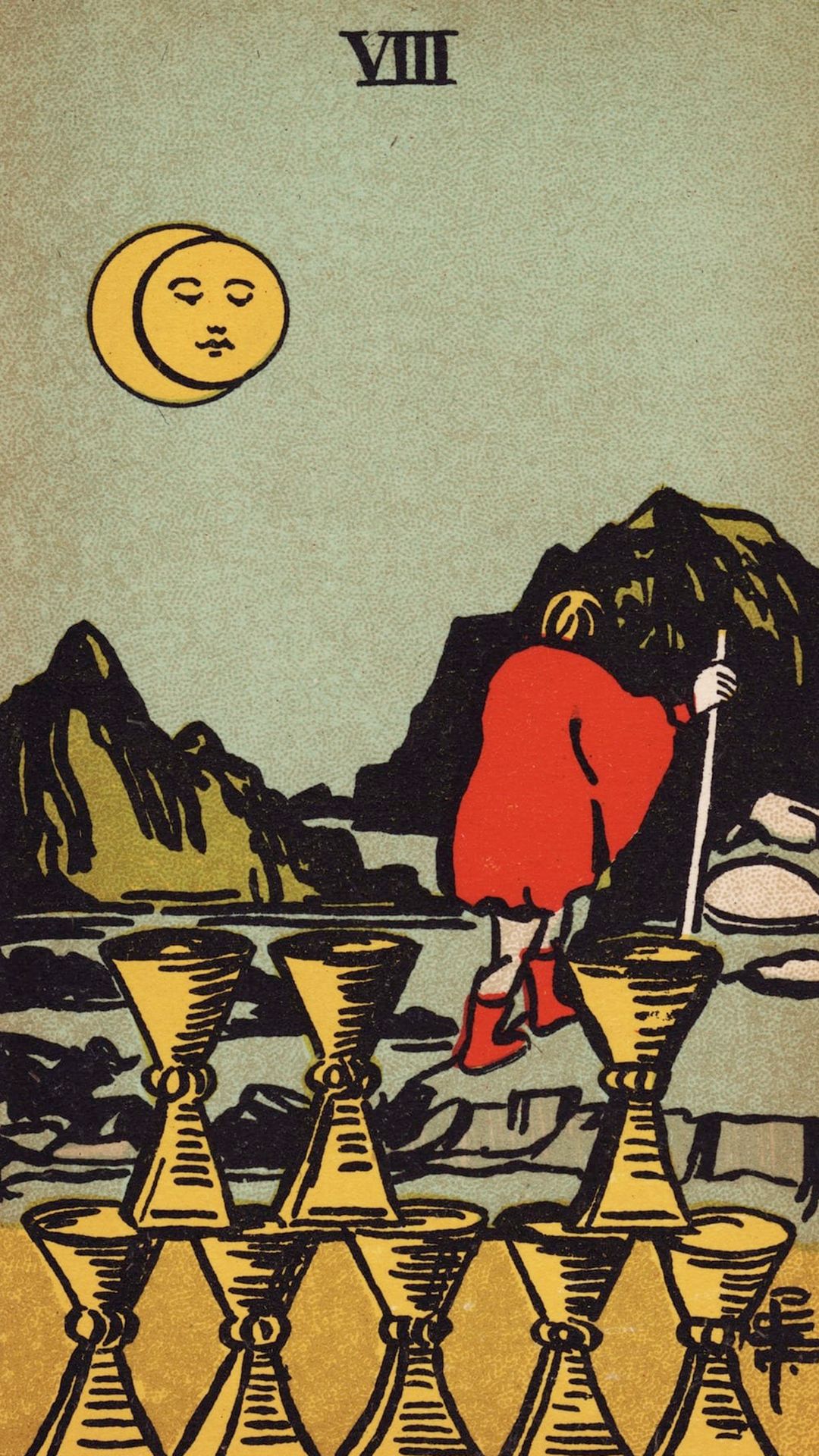Combination of card Three of Cups and card Eight of Cups
The Three of Cups signals friendship and joy, while the Eight of Cups points to the need to leave the past behind. Together, they paint a paradoxical picture: true happiness often comes after a painful break with what came before. After dropping a heavy burden, you discover new kindred spirits. This combination is typical when changing jobs – deciding to leave a familiar team can open doors to a more suitable environment.
Combination of card Three of Cups and reversed card Eight of Cups
A Three of Cups in an upright position next to a reversed Eight of Cups is a classic sign of getting stuck in your comfort zone. On the surface – laughter, toasts, and friendly hugs, but underneath, a quiet discontent is building. You're clinging to your familiar circle, even though your intuition whispers about the need for change. These cards often appear for people who fear loneliness more than unfulfilled potential.
Combination of reversed card Three of Cups and card Eight of Cups
A reversed Three of Cups paired with an upright Eight of Cups points to fake happiness and an urgent need for change. Smiles have grown strained, conversations hollow. This combination signals a moment of clarity: what once seemed like valuable connection has turned into mere routine. It's time to move on, even if that means temporary solitude. Some bonds are worth breaking to make room for genuine relationships.
Combination of reversed card Three of Cups and reversed card Eight of Cups
Both cards are reversed: the Three of Cups points to isolation, and the Eight signals a fear of change. This is a dead end where someone suffers from loneliness but is afraid to make any moves. Like a hermit who complains about not having visitors yet won't open the door. This pattern often appears in people who endure toxic environments out of fear of losing their last social connections.

